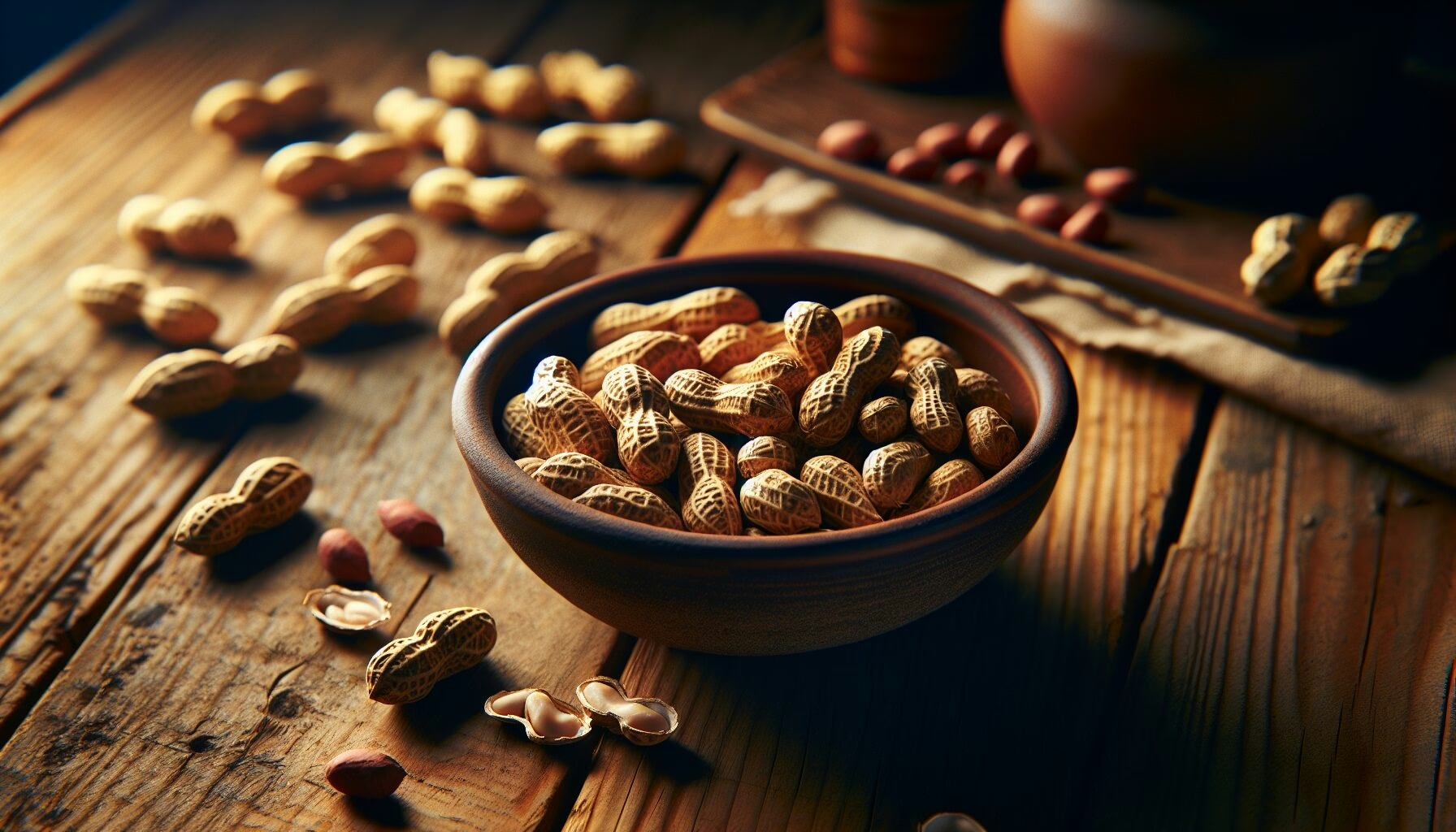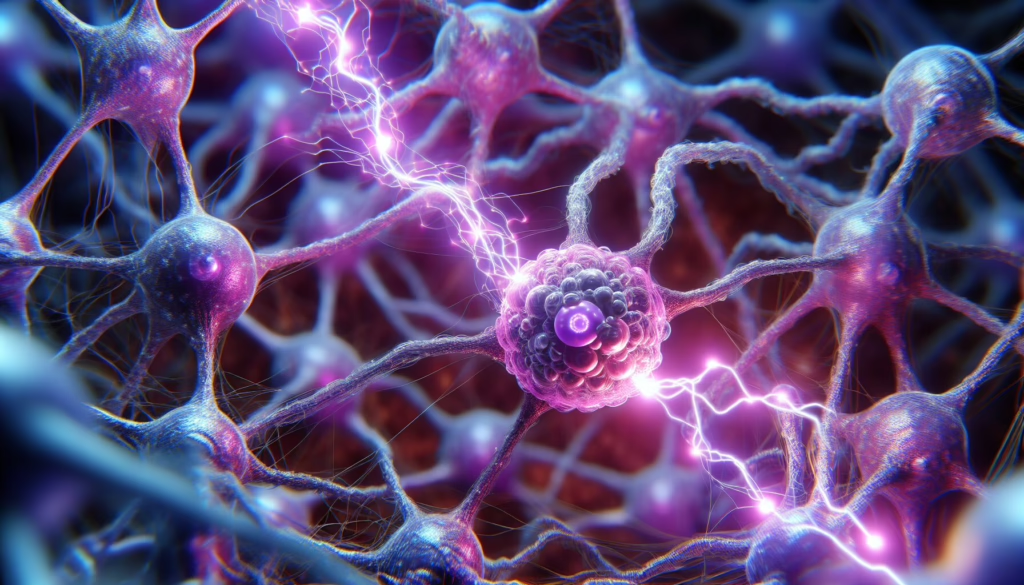
Peanuts And Brain Health: Could Peanuts Support Our Memory
Recent clinical nutritional research suggests that a serving of peanuts could have benefits for brain health through supporting our memory and stress levels.
Peanuts are a considered to be a health supportive food in some cultures. They are particularly revered in China. Peanuts are a rich source of various nutrients such as manganese, branched chain amino acids and potassium.
These nutrients support muscle health in our body through assisting healthy levels of protein synthesis and energy metabolism. Potassium helps with healthy neuromuscular signalling for healthy muscle functioning. These nutrients also influence brain health and functioning through the same processes.
Peanuts are also a source of healthy fatty acids such as linoleic acid which may also support brain health. This is especially considering the fact that a large portion of our brain tissue structure is made of fats. Without proper fatty myelination around our nerve cells they send signals at lower speeds and this reduces their functionality.
Various nutritional studies have found that regular peanut consumption could support various aspects of our wellbeing including brain health. Some important areas of brain health that may be supported by regular peanut consumption include anxiety and brain executive functioning.
Here we will take a look at the evidence from a recent trial study which related regular peanut consumption over a lengthy period of time to significant improvements in some aspects of brain health.

Peanuts And Our Brain
Peanuts are vegetables and are a very popular food amongst vegetarians but also within the fitness community. The consumption of peanuts is growing globally with some cultures really revering peanuts as a health supporting food. Peanuts contain high levels of some important nutrients which could influence the health of our brain.
Peanut Core Minerals
Peanuts are a food which is rich in various health supportive nutrients such as the minerals potassium and manganese. These minerals could play a role in supporting the health of our brain or nervous system. They may do so through assisting with optimal nerve cell metabolism and performance.
Peanuts are also a source of copper. Sufficient dietary copper helps the myelination process within nerve cells. Healthy nerve cell myelination with a fatty coating supports accelerated signalling within the nervous system. Dietary copper may support brain health in the right amounts.

Peanut BCAAs
Peanuts are also a source of branched chain amino acids. These support protein synthesis in addition to other amino acids. Research also shows that BCAAs could be very important for maintaining the overall health of the brain.
Branched chain amino acids also assist with the formation of the blood brain barrier which may also support brain health. The blood brain barrier is important for maintaining brain protection from harmful external influences in the blood. Build ups in heavy metals for example can be really harmful for the wellbeing of the brain. In contrast to other vegetable foods peanuts contain a massive amount of BCAAs or branched chain amino acids.
Peanut Fatty Acids
The fatty acid content in peanuts is also high. Considering that levels of fat are very high in brain tissues this is another possible means as to how peanuts could influence brain health as an important part of brain tissue structure. Healthy fatty acids from peanuts such as linoleic acid may be one of the main influencing factors on brain health.
Peanut Dietary Fibre
The dietary fibre content of peanuts is also really high. Peanut dietary fibre is possibly a prebiotic. This means peanut dietary fibre may influence levels of health supportive gut bacteria which produce nutrients for us to us and protect the gut from harmful inflammatory bacteria too. This is another possible influencing factor of peanuts on brain health.

Could Peanuts Support Memory And Reduce Stress Levels
Various smaller studies have shown that there are links between peanut consumption and brain health. For example one study found that peanuts may improve blood vessel flow which may have led to improved cognition. Our blood supply to the brain is really important for nutrient delivery.
One study found that the regular consumption of peanuts improved cognitive functioning and lowered risks of anxiety compared to a group which did not consume peanuts. This study provides one of the first in depth trial reports on how peanuts actually affect brain health in the everyday life of a person.
The study took place over a period of six months. They assessed various markers of brain health which researchers thought may be influenced by regular peanut consumption. One group ate 32 grams a day of peanut butter and another group consumed 25 grams a day of skin roasted peanuts.
Compared to a control group the study concluded that regularly eating peanuts and peanut butter may enhance memory and stress responses such as anxiety in healthy young people. The study attributed this influence on brain health to higher levels of certain gut microbial fatty acids and peanut polyphenols in the groups eating peanuts.

Our Gut Brain Axis And Peanut Consumption
Levels of total SCFAs or short chain fatty acids were thought to have improved in the groups eating peanuts. So were levels of very long chain saturated fatty acids. Very long chain saturated fatty acids have been linked to reduced cardiovascular disease risk and may affect neuronal network formation. SCFAs or short chain fatty acids are made by our gut bacteria. These have been linked to positive changes in brain health.
One very plausible means of influence on brain health here may be healthy gut microbe caused changes in inflammation and also blood SCFAs. The researchers also suggested that this may be of the most important reasons for the observed effect on brain health from regularly consuming peanuts.
Lower levels of systemic inflammation could reduce stress or anxiety while higher levels of SCFAs could support positive changes in brain metabolism to influence memory. SCFAs can also be used to make lipids for energy and may influence cell growth in brain tissue via mTOR.
Lower levels of inflammation are also associated with improvements in cognitive functioning or memory. Health promoting gut bacterial SCFAs may include acetic, propionic and butyric acids which research has found may have effects on brain health related issues such as depression or neurodegeneration.
The study also found inflammation reducing peanut polyphenols could also have affected brain health in the groups eating peanuts through reductions in systemic oxidative stress. When levels of oxidative stress or physiological stress levels are high the levels of our stress hormone cortisol also increase. This adds another important dynamic to how the regular consumption of peanuts may affect brain health.
Overall the research evidence from this study and elsewhere strongly suggests that regularly eating peanuts could support reductions in anxiety and also improvements in our memory.

Summary
A recent and in depth nutritional trial with peanuts suggests regular peanut consumption could have benefits for brain health.
Peanuts are considered to be a health supportive food because they are a rich source of nutrients such as amino acids, healthy fatty acids and minerals. They also provide us with a healthy serving of dietary fibre and peanut polyphenols. Together these nutrients may support functions which assist with improving various aspects of brain health.
A recent study linked regular peanut consumption at 25 grams a day and 32 grams a day of peanut butter consumption with improvements in memory. The trial study also showed that both group experienced less anxiety or stress.
The study provided one of the first in depth reports into how the addition of peanuts to a diet may affect brain health in the everyday life of a person. Core influencing factors of peanut consumption on brain health were thought to be higher levels of certain gut bacterial fatty acids and polyphenols.
There is a big possibility that the dietary fibres of peanuts are a prebiotic influence on our gut bacteria which in turn supports brain health. This could occur through reductions in systemic inflammation which may also be influenced by short chain fatty acids.
Health promoting gut bacterial SCFAs are linked improvements in some brain health related issues such as depression or neurodegeneration. Our brain tissues are high in fats so healthy peanut fatty acids may optimise brain health through supporting brain structure. Peanuts also contain antioxidant polyphenols and they may influence levels of anxiety or stress.
Overall the evidence from this trial study strongly suggests that regularly eating peanuts could support reductions in anxiety or stress and also improvements in memory.
For more interesting articles see the main articles page.





